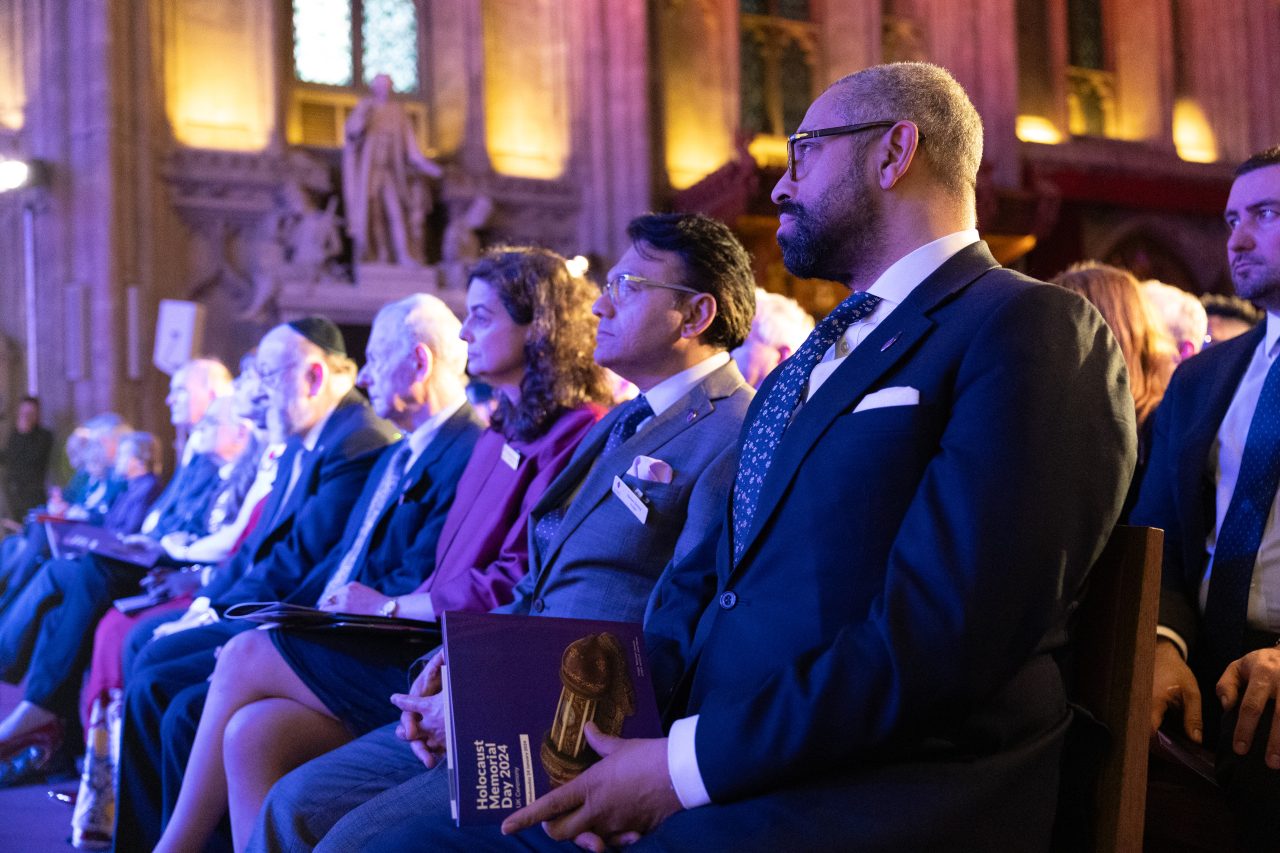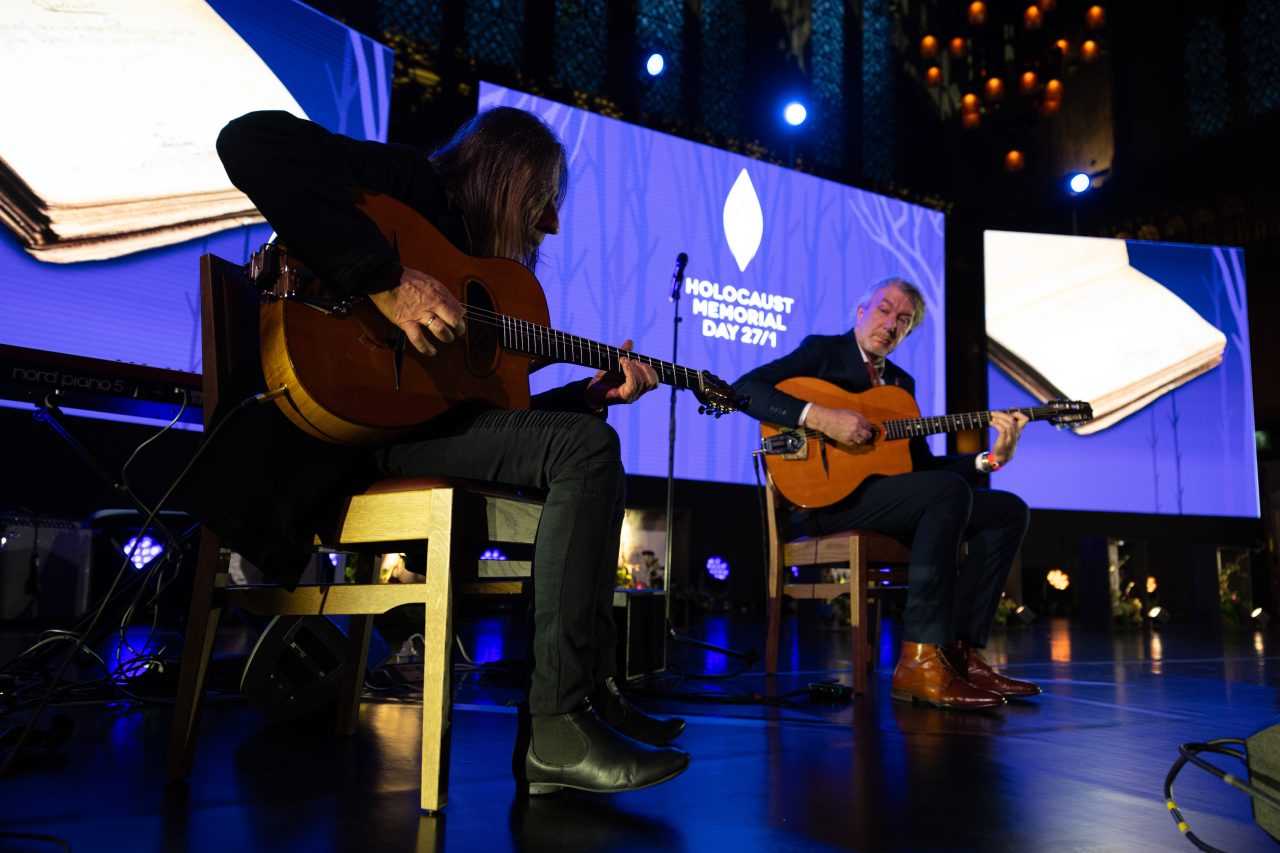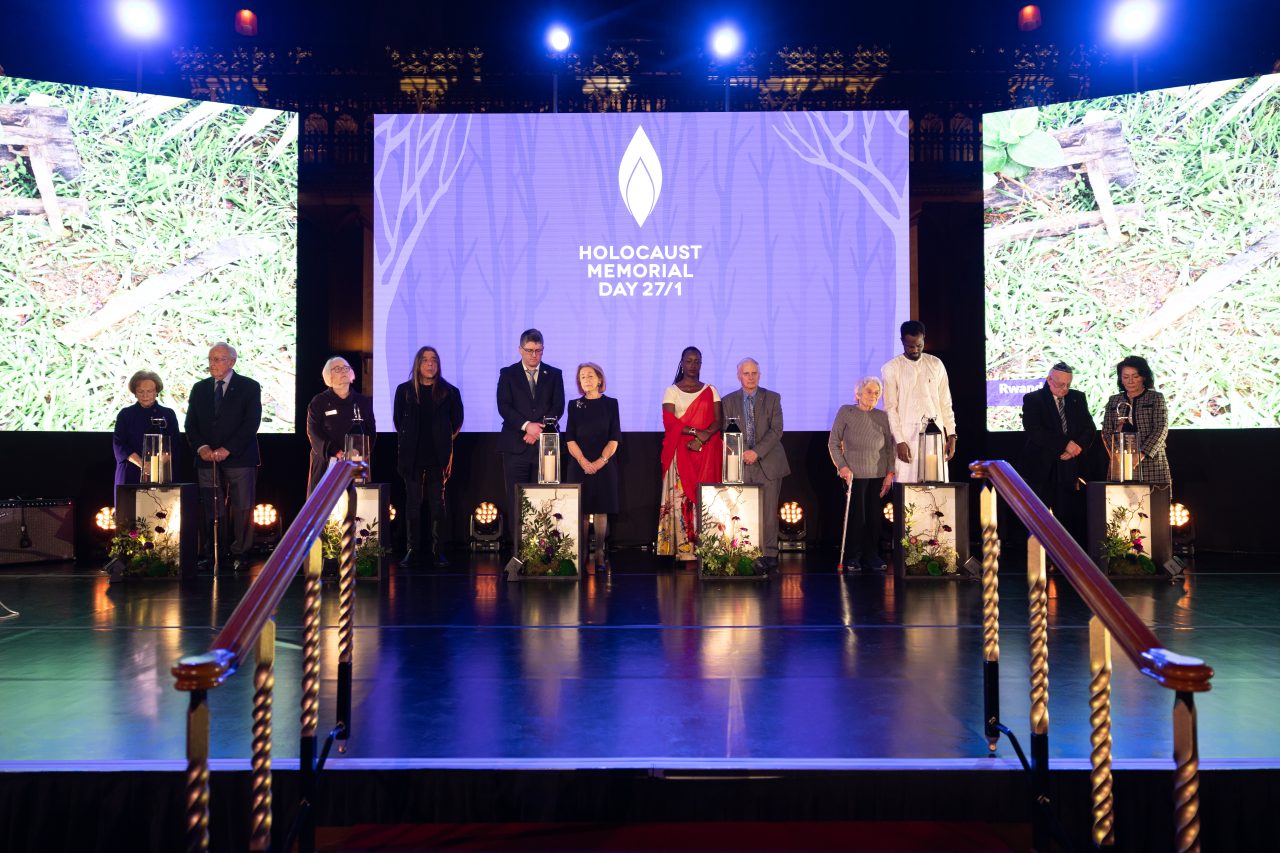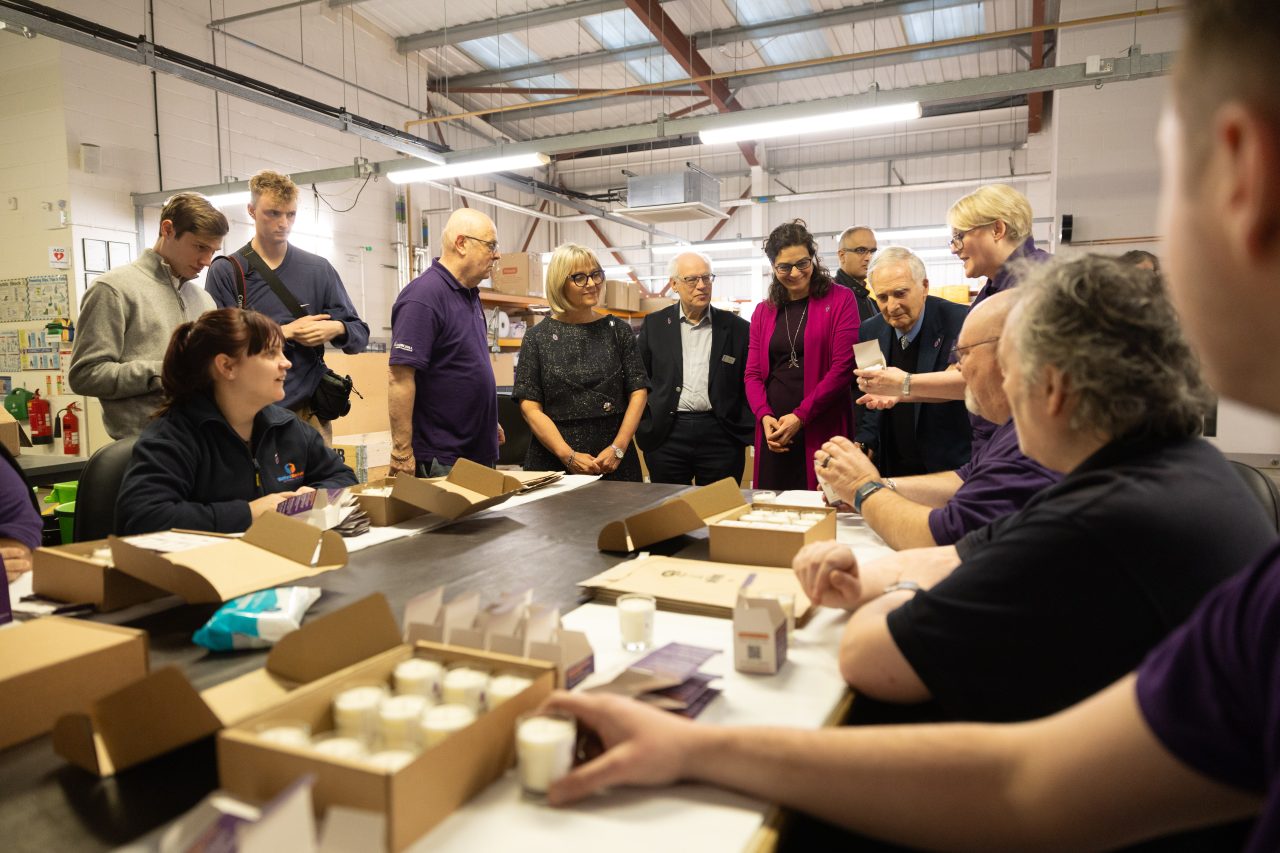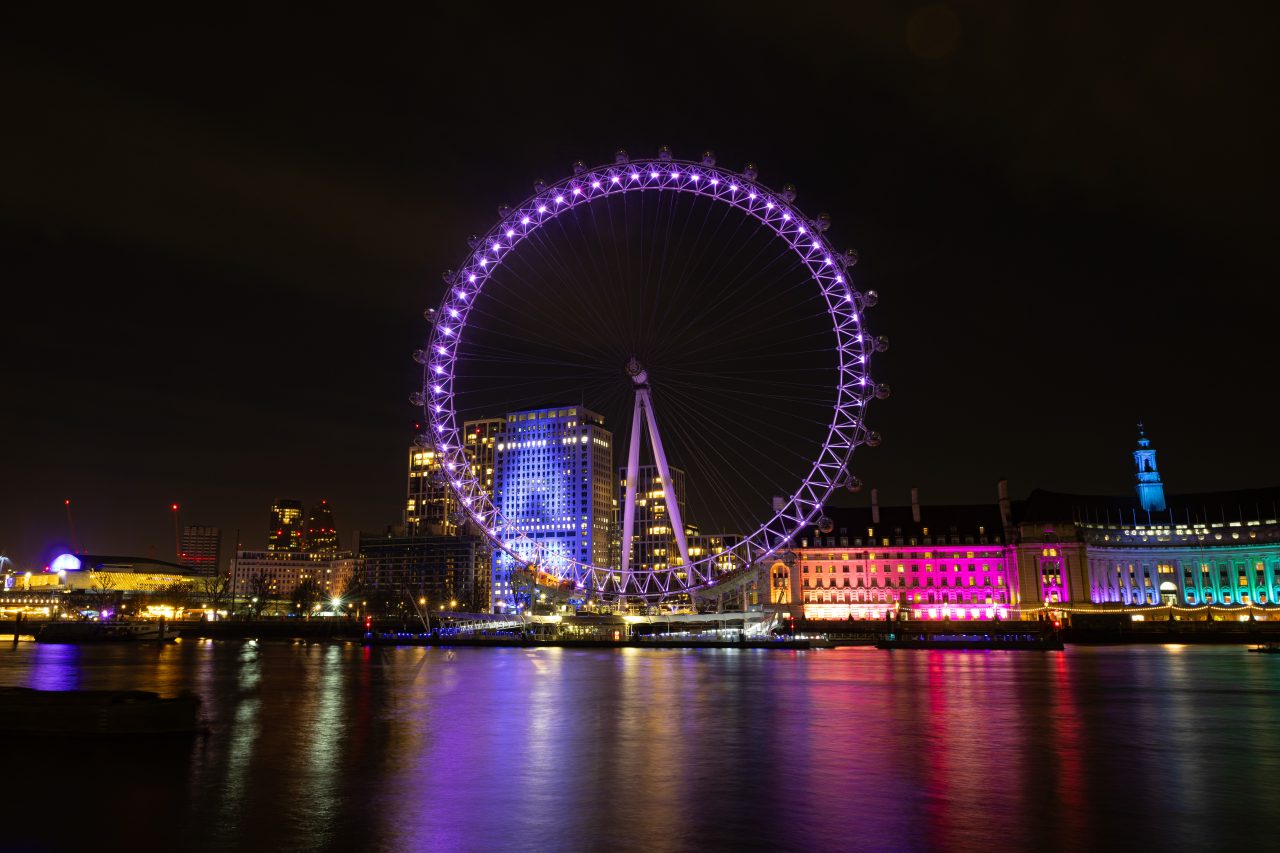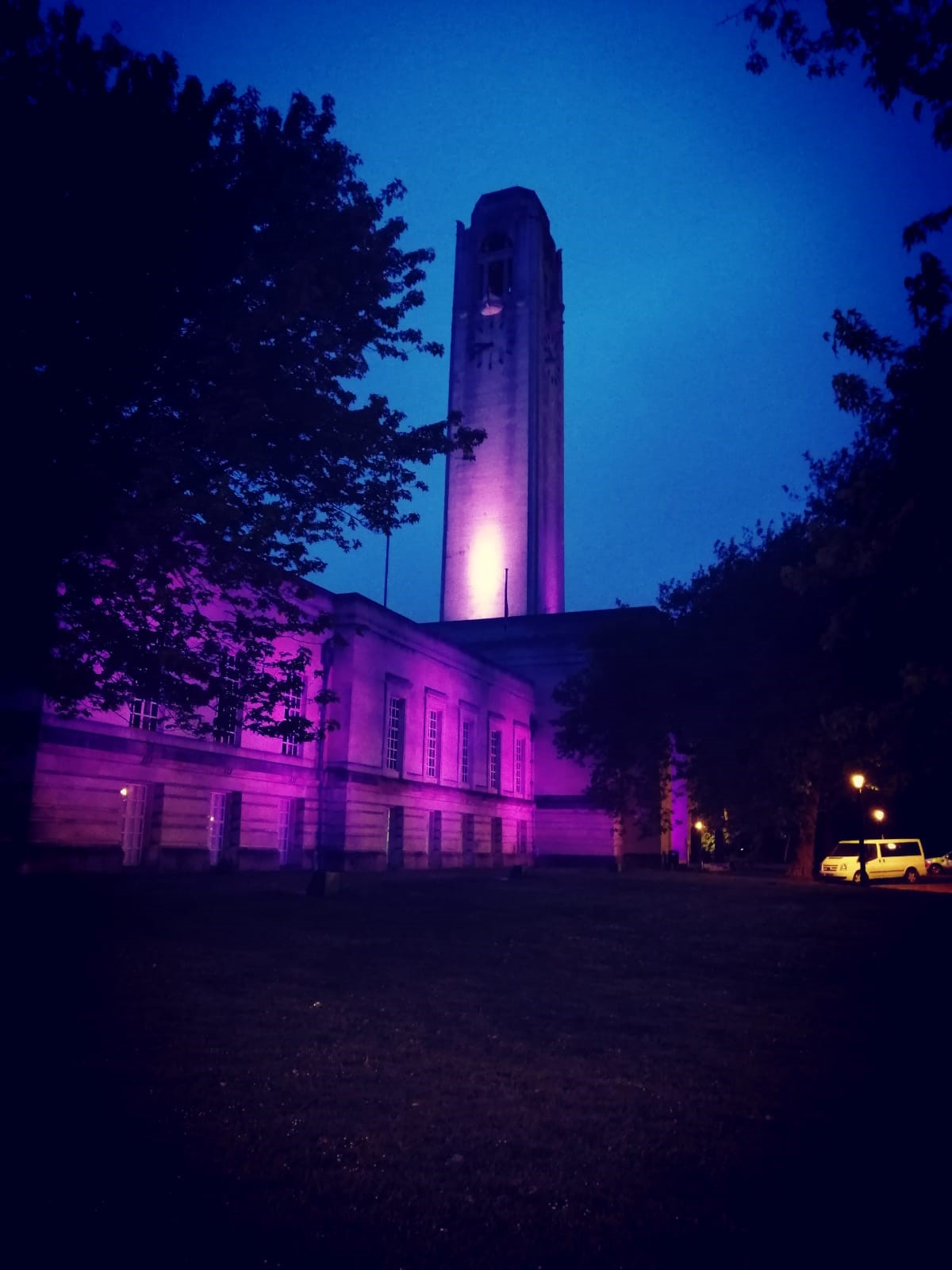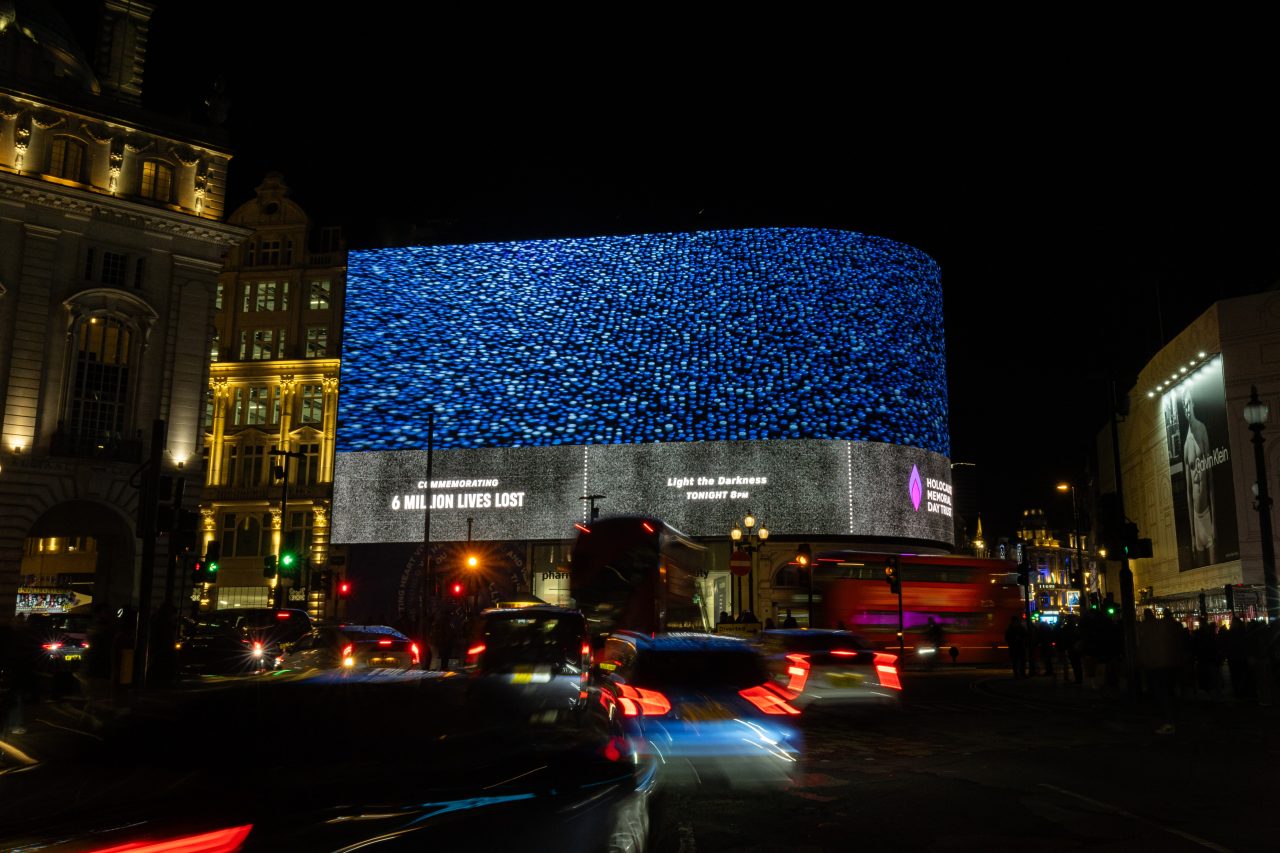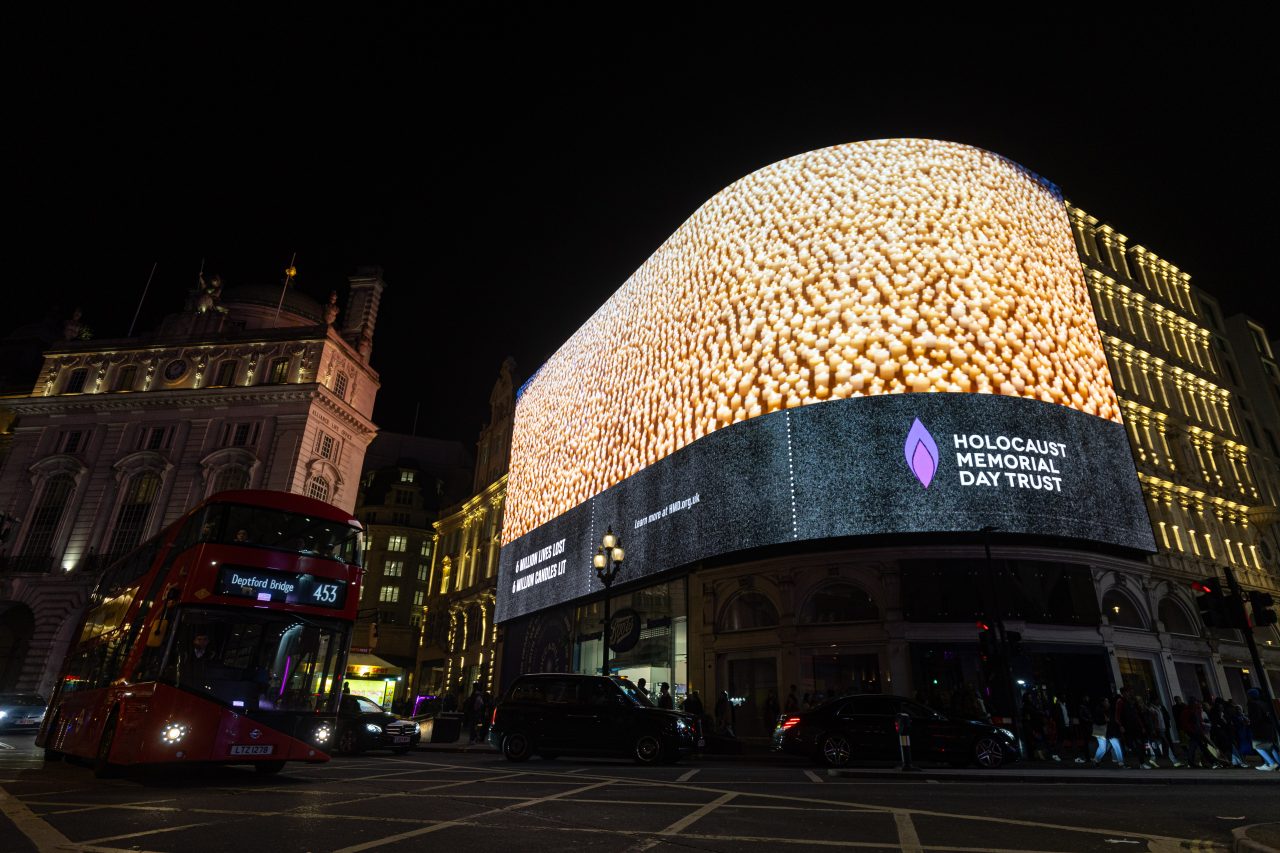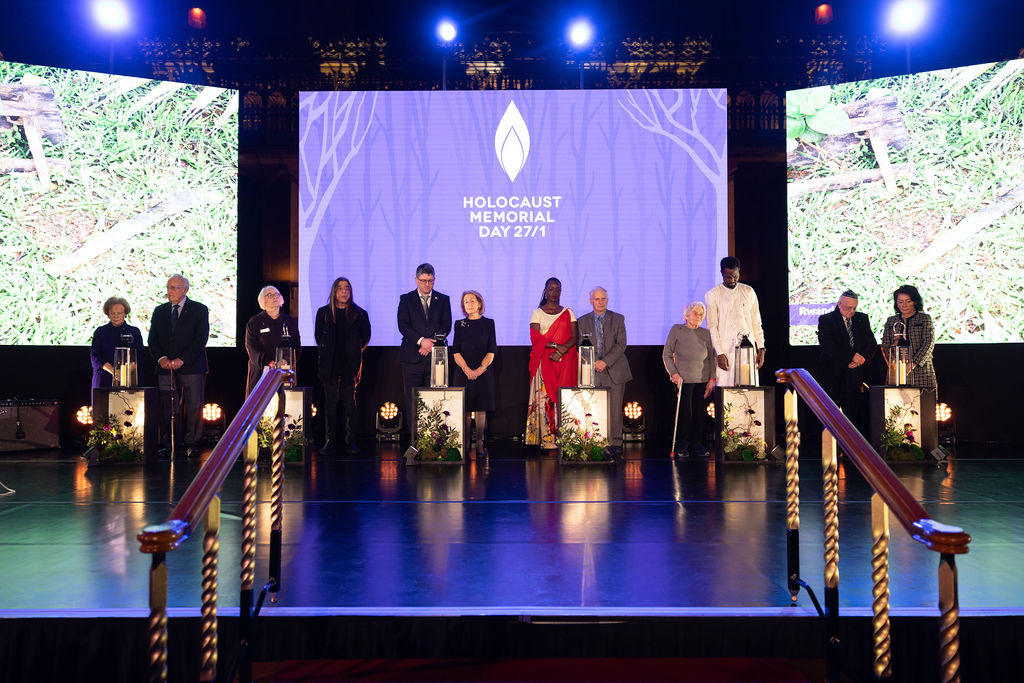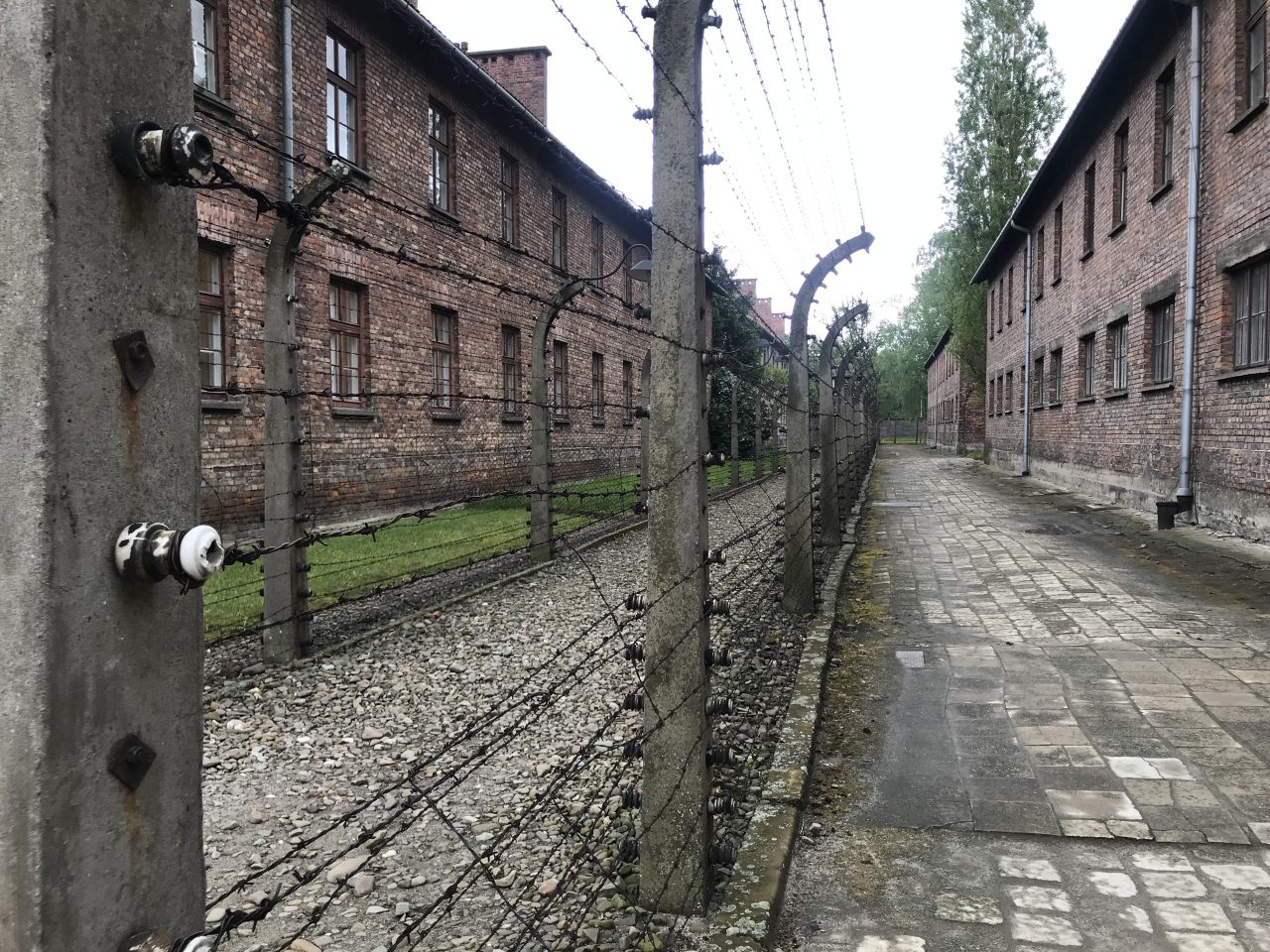The UK marks HMD 2024
People came together across the UK to mark Holocaust Memorial Day (HMD) 2024, culminating in the streaming of curated moments from the HMD 2024 UK Ceremony and the Light the Darkness national moment. Here we highlight just some of the ways Holocaust Memorial Day was marked this year.
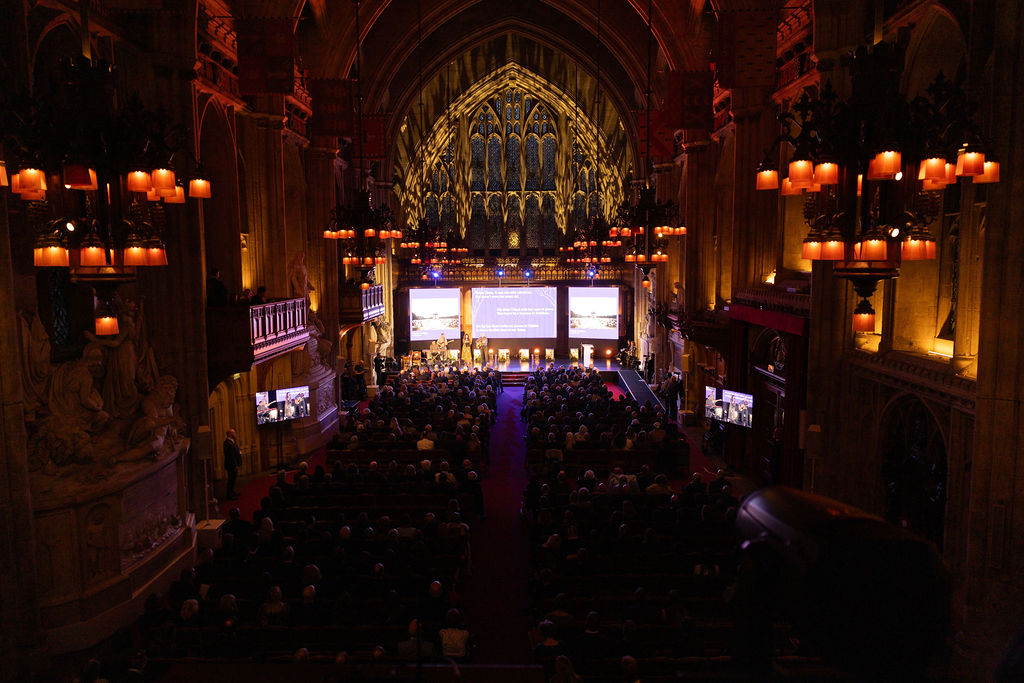
Image: The HMD 2024 UK Ceremony took place in the historic Guildhall © Sam Churchill
On Holocaust Memorial Day, curated moments from the HMD 2024 UK Ceremony were watched by thousands of people across the UK.
Watch HMD 2024 UK Ceremony: Curated Moments
The nation then joined the Light the Darkness national moment; at 8pm on 27 January. People across the UK lit candles and put them safely in their windows to remember all those murdered for who they were. Iconic buildings and landmarks lit up in purple during this powerful national moment of remembrance and solidarity.
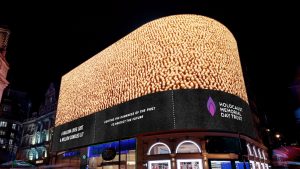
6 million candles lit up on screens across the UK for HMD 2024 © HMDT / Sam Churchill
For the first time, this year our national moment was accompanied by a powerful campaign designed by creative agency St. Luke’s. We worked with them to light 6 million candles in a digital vigil across the nation’s billboards – 6 million candles for 6 million lives lost during the Holocaust.
Our Chief Executive, Olivia Marks-Woldman OBE said:
We are immensely grateful to every landmark that is taking part, as well as our partners at St. Luke’s, Global, Clear Channel, National Rail, Ocean Outdoor, and JCDecaux for encouraging people to light the darkness.
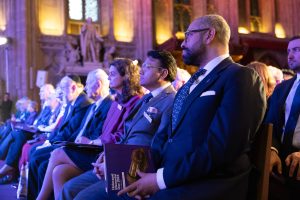
Political and faith leades attend the Ceremony alongside survivors © HMDT / Sam Churchill
Earlier in the week civic, faith and political leaders attended the UK Commemorative Ceremony for HMD 2024 alongside survivors of the Holocaust and genocide. The commemoration took place at the historic Guildhall in London. It featured music, poetry, testimony and films, as well as powerful speeches from The Right Hon Michael Gove MP and The Right Hon Angela Rayner MP.
Entries into the first ever creative competition for prisons and youth offender institutes were exhibited at the Ceremony. We held the competition in partnership with Novus, a leading provider of education, training, and employment in prisons across England and Wales. The competition, designed to encourage learning about Holocaust Memorial Day (HMD) in custodial settings, received a huge response, with hundreds of entries submitted from a wide range of prisons.
Harri Stojka, the son of Roma genocide survivor Johann Stojka, performed Song For My Daddy at the Ceremony in a memorable tribute to his father. The sketchbook of Johann was featured on the Ordinary Objects, Extraordinary Journeys website we created with the National Holocaust Centre and Museum, and until we alerted Harri to this project, he was unaware of his father’s sketchbook. While visiting the UK to take part in the Ceremony, Harri and his family visited the Imperial War Museum to view Johann’s poems and sketches for the very first time.
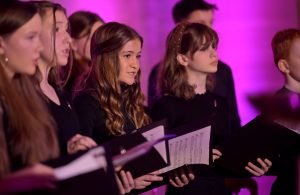
The HMD 2024 Ceremony in Wales
Regional ceremonies in Scotland, Wales and Northern Ireland have been taking place. We supported the House of Commons Holocaust Memorial Day Ceremony and facilitated the Lord Speakers Lecture Series Holocaust Memorial Day Panel: Fragility of Freedom. Government departments have been holding HMD activities throughout the week.
Thousands of HMD activities have been held in communities around the UK and will continue for the coming days. Explore our interactive map to discover local activities happening near you.
Our Chief Executive, Olivia Marks-Wolman OBE has said of this year’s Holocaust Memorial Day commemorations:
In the face of rising antisemitism and anti-Muslim hatred, it is crucial, now more than ever, that we unite to mark Holocaust Memorial Day. HMD brings people together and strengthens communities, reminding us all of the need to respect the humanity in others. This year’s theme, the Fragility of Freedom, provides an opportunity for collective reflection on the delicate nature of freedom. It also challenges us to safeguard our freedoms at every opportunity. Aside from the UK national commemoration, there are thousands of local events taking place across the country: in schools, places of worship, museums and even prisons. The resilience shown by the survivors of the Holocaust, and those of more recent genocides, is not only courageous but deeply inspiring. We owe it to them to learn from the past for a better future.
